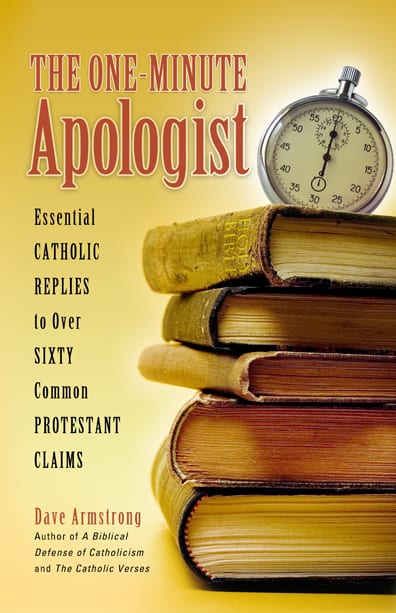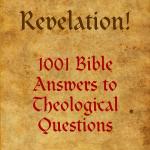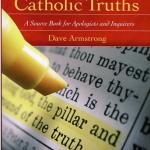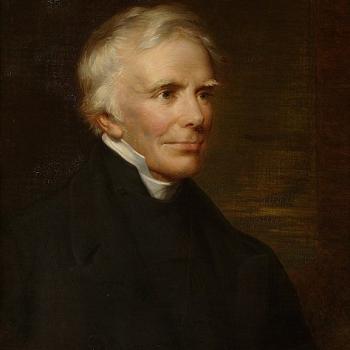
From my book, The One-Minute Apologist: Essential Catholic Replies to Over Sixty Common Protestant Claims (May 2007)
*****
[critical accusation] The early Church denied the canonicity and inspiration of these seven Aprocryphal books, but the Catholic Church added them centuries later.
The One-Minute Apologist Says:
It was Protestantism that removed these “deuterocanonical” books from the Bible many centuries later. And, contrary to the myth, the early Church did, indeed, accept those books as Scripture.
The seven disputed books are: Tobit, Judith, 1 and 2 Maccabees, Wisdom of Solomon, Ecclesiasticus (or Sirach), and Baruch. Catholic Bibles also include an additional six chapters (107 verses) in Esther and three chapters (174 verses) in Daniel.
According to major Protestant scholars and historians (see bibliography on the next page), in the first four centuries Church leaders (e.g., St. Justin Martyr, Tertullian, St. Augustine, St. Ambrose, St. Cyprian, St. Irenaeus) generally recognized these seven books as canonical and scriptural, following the Septuagint Greek translation of the Old Testament, following the council of Rome (382), and general consensus, finalized the New Testament canon while also including the deuterocanon, in lists that were identical to that of the Council of Trent (1545–1563).
There’s a scholarly consensus that this canon was pretty much accepted from the fourth century to the sixteenth, and indeed, the earliest Greek manuscripts of the Old Testament: the Codex Sinaiticus (fourth century) and Codex Alexandrinus (c.450) include the (unseparated) deuterocanonical books. The Dead Sea Schrolls found at Qumran did not contain Esther, but did contain Tobit.
A Protestant Might Further Object:
Yet, St. Jerome, who was the greatest Bible scholar in the early Church, and author of the Latin Vulgate, didn’t accept these extra books. We know what books were in the Old Testament from the Jewish synod of Jamnia (c. A.D.90), which excluded the Apocrypha. The Jews knew very well what books were in their own Bible!
The One-Minute Apologist Says:
According to Douglas and Geisler, Jamnia was not an authoritative council, but simply a gathering of scholars, and similar events occurred afterward. In fact, at Jamnia the canonicity of books such as Esther, Ecclesiastes, and Song of Solomon was also disputed. Since both Protestants and Catholics accept these books today, this shows that Jamnia did not “settle” anything. The Jews were still arguing about the canonicity of the books mentioned earlier and also Proverbs into the early second century.
And St. Jerome’s sometimes critical views on these books are not as clear-cut as Protestants often make them out to be. In his Apology Against Rufinus (402), for example, he wrote:
When I repeat what the Jews say against the Story of Susanna and the Hymn of the Three Children, and the fables of Bel and the Dragon, which are not contained in the Hebrew Bible, the man who makes this a charge against me proves himself to be a fool and a slanderer; for I explained not what I thought but what they commonly say against us. (Apology Against Rufinus, Book II, 33)
Significantly, St. Jerome included the deuterocanonical books in the Vulgate, his Latin translation of the Bible. (And he defended the inspiration of Judith in a preface to it.) All in all, there is no clear evidence that St. Jerome rejected these books, and much to suggest that he accepted them as inspired Scripture, as the Catholic Church does today. But St. Jerome (like any Church father) does not have the final authority in the Church. He’s not infallible. The historical evidence, all things considered, strongly supports the Catholic belief that these books are inspired and thus, indeed, part of Holy Scripture.
In practice Athanasius appears to have paid little attention to the formal distinction between those books which he listed in the canon and those which were suitable for the instruction of new Christians [Athanasius cited Wisdom of Solomon, Sirach, Esther, Judith, and Tobit]. He was familiar with the text of all, and quoted from them freely, often with the same introductory formulae— ‘as it is written,’ ‘as the scripture says,’ etc. (F. F. Bruce, Protestant Bible scholar)
Bibliography
F. F. Bruce, The Canon of Scripture.
F. L. Cross and E. A.Livingstone, editors, Oxford Dictionary of the Christian Church.
J. D. Douglas, editor, The New Bible Dictionary.
Norman L. Geisler and William E. Nix, From God to Us: How We Got Our Bible.
J. N. D. Kelly, Early Christian Doctrines.
James Orr, general editor, The International Standard Bible Encyclopedia.
Philip Schaff, History of the Christian Church and Post-Nicene Christianity.
Brooke Foss Westcott, A General Survey of the History of the Canon of the New Testament.
***
Related Reading













